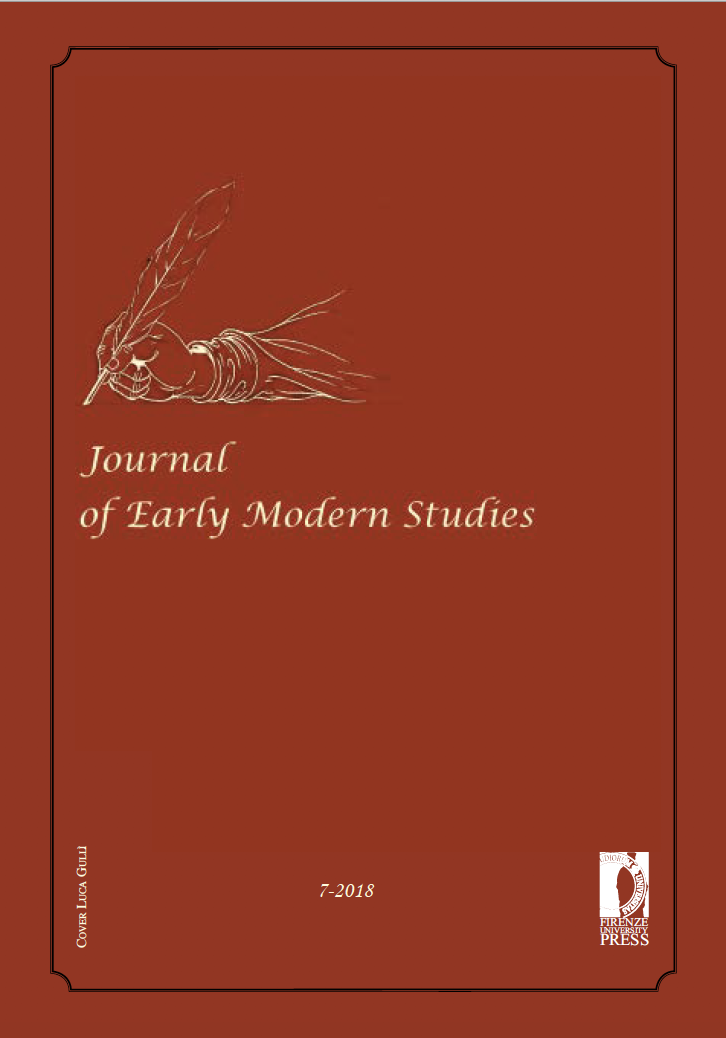Abstract
The article explores issues of reading and recitation in the literary polemic surrounding Torquato Tasso’s epic poem Gerusalemme liberata (1581). This controversy emerged as the result of competing claims regarding the identification of the modern vernacular heir to the epic works of Antiquity, with two separate camps arguing for either Tasso’s poem or Ludovico Ariosto’s Orlando furioso (1532). Writing against Tasso was the Florentine Academy of the Crusca, who claimed that Tasso’s poem was difficult to understand during recitation due to seemingly nonsensical phrases which they termed parole appiastricciate, ‘mashed-up words’. Through an analysis of the discourse surrounding these words, the essay investigates competing manners of reciting poetry as they are described by both the Crusca and Tasso’s supporters. It argues that the Crusca employed, and vehemently defended, a particular manner of recitation derived primarily from the poem’s meter; by contrast, Tasso’s supporters emphasized attention to the phonetic texture of the verse produced by the interrelationship of individual sounds. By comparing these different positions and investigating the structure of the parole appiastricciate themselves, the article suggests that Tasso’s poem, and the controversry surrounding its form and structure, offer an important perspective on changing literary tastes in late sixteenth-century Italy.


